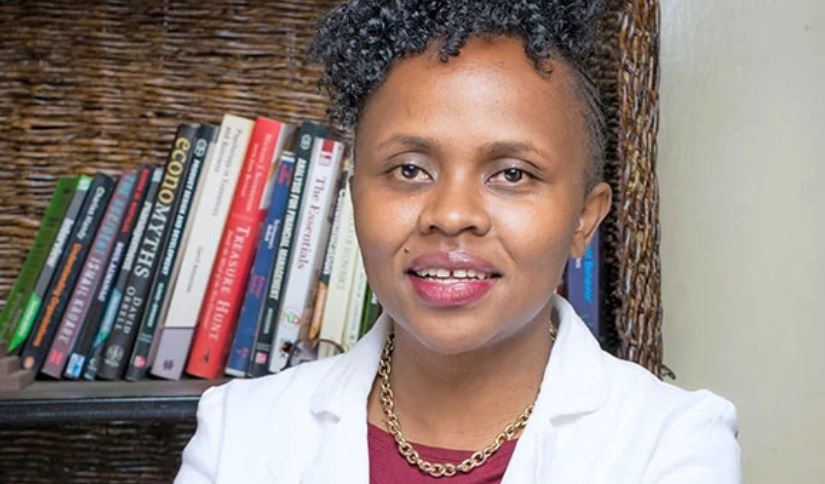
Check Out: Kenyan Among Three Africans Picked for Obama Foundation Fellowship
Ms Mwaniki is the founder and CEO of Lapid Leaders Africa, a leadership programme that equips young people with skills to guide them beyond institutions of higher learning.
She spoke to Nation’s myNewtwork:
1. How would you describe yourself? Would you say that your personality has changed over the years?
I am an introverted person with an intense personality. I am keen on bringing out the best version of myself and utilising my strengths and abilities. I also consider myself a builder and a change-maker with a high level of focus and good communication skills.
But, it has not always been like this. In my early twenties, I could not use those words to describe myself because I could not handle the intensity of who I was.
The fact that I am a deep thinker made me feel like there was something wrong with me.
Over time, I learnt to embrace it.
2. You went to the university, studied accounting, worked for local and multi-national companies – you, in fact, resigned from your last job seven years ago. Why?
The first time I resigned, I was a manager in an audit department in one of the largest banks in the UK.
My parents and friends felt that I had made a wrong move and pushed me back to employment, however, even after rising at my workplace, I decided to leave employment again.
I wanted a meaningful career of impact and purpose, and my role in the accounting field was not giving me that.
Notably, that is not to mean that those who work in that field are not living a meaningful life.
That was self-judgement.
3. What lessons did you draw from the move?
I have learned to trust my intuition more. I have discovered that we all have an inner voice that knows the right path and leads us to a purposeful life.
During our trainings and forums, I enjoy taking trainees through the same process of self-introspection.
4. When you founded Lapid Leaders Africa in 2014, what did you have in mind?
Lapid means torch in Hebrew. I wanted to develop the next generation into transformational leaders who would make a difference in Africa.
I believed, and still do, that the greatest asset that the continent has is its youth.
Unfortunately, as a continent, we are not investing in them and as a result, losing a lot of potential.
I wanted to be part of reversing that, to invest heavily in the youth, to train them holistically, to mentor them, to develop them into leaders who will make a difference in our society.
We are in the business of building the change-makers of Africa.
5. You are in the business of mentoring millennial, is there a guideline to follow when approaching someone for mentorship?
On frequent basis, I engage and network with people who are willing and want to mentor the youth.
However, they struggle with the lackluster with which many youth approach mentorship. I remind millennial that mentorship is a gift of time and when well utilised, it can make a world of difference, therefore, before you ask someone to be your mentor, you need to do self-analysis and ask yourself why you need a mentor, what character and attributes you bring into the relationship to demonstrate that you value the mentor’s time and how you will ensure that you take responsibility for whatever lessons you learn.
When a mentor meets a mentee who has answered these questions, the possibilities are endless.
Mentorship has been a big part of the African historical culture.
What made it work so well in the past is the importance placed on it and level of responsibility and ownership that both the mentors and mentees had. We need to recoup these practices.
6. How would you compare your 20s and 30s?
I am 36 years now. I am more self-aware and more comfortable in how I present myself and interact with others. At this point of my life, I am less caught up trying to compare myself with others.
The more I grow, the more I find the years enjoyable, however, I also had a great time in my 20s.
I spent the years learning from individuals who were intentional about mentoring me. I also got opportunities to travel and work in the UK.
These opportunities were eye-opening, they changed my views and perspectives about life and the world in general.
7. What do you consider your biggest achievement?
Recently, I was selected from a pool of thousands of applicants as one of the 2019 fellow for Obama Foundation Fellowship, an initiative that supports outstanding civic innovators.
We are only three Africans selected for the two-year long program.
8. Talking to your younger self, what would you tell her?
Seek excellence, not perfection, and constant growth and you will do great things. Also, keep your relationship with God at the forefront.






